Careful: Quotation Marks Can Be Snarky

Anything you can do to ensure the meaning of your comments comes through as intended is worth the effort. Today’s example is when quotation marks are used to clarify, albeit sometimes sarcastically, a point of view.
However, this approach may leave room for interpretation when done without consideration, which we would like to avoid if at all possible.
As used in this example, Quotation marks highlight a word that is used unusually. In particular, in this case when you want to indicate irony, inaccuracy, or skepticism.
We are essentially discussing the online version of air quotes. When quotation marks are used in this way in writing, they are referred to as scare quotes.
What are Scare Quotes?
You’ve probably used them without knowing what they are called. Scare quotes are quotation marks used before and after a word or phrase to show that that particular word or phrase is unusual or perhaps not accurate.
The Chicago Manual of Style describes scare quote use as follows:
Quotation marks are often used to alert readers that a term is used in a nonstandard (or slang), ironic, or other special sense. Such scare quotes imply this is not my term or this is not how the term is usually applied. Like any such device, scare quotes lose their force and irritate readers if overused.
I got a kick out of the part noting that overuse irritates readers. If you think about it, scare quotes are generally used in a snarky manner, right? Or in an attempt at humor. Just like off-line air quotes.
More from Wikipedia:
Writers use scare quotes for a variety of reasons. Scare quotes are used to imply an element of doubt or ambiguity regarding the words or ideas within the marks, or even outright contempt. They can indicate that a word or phrase is being purposely misused or that the writer isn’t persuaded by what is being said, and they can allow the writer to deny responsibility for what is being reported. In general, they express distance between the writer and the quoted words.
The scare quotes might indicate that the word is not one the writer would normally use, or that the writer has an opinion that there is something dubious about the idea of its application. The exact meaning of the scare quotes is not clear without further context.
Two more paragraphs to describe how quotation marks are used when one wants to be snarky.
Email Emphasis Can be Tricky
In the above site visitor’s inquiry, I would take the use of quotes to mean that the author is concerned about the behavior of those on the board. Elected or appointed carry two different sets of anticipated behavior.
When tempted to use scare quotes, remember that you’ll make a stronger impression with your statement if you use them sparingly. Additionally, conveying emphasis in plain text can be challenging because sarcasm is often difficult to convey in writing.
That is why sarcasm should be avoided if possible, as it is subjective and open to interpretation by the other side. Only the very skillful can relay precise emotions with the written word.
There are other ways to relay innocuous emphasis. For example, for simple emphasis, use forward slashes like this:
It is not that I don’t care, it is that I care /too much/.
Forward slashes are more explicit in their intent of use — emphasis. Want to be a bit snarky? Go with quotation marks. But know that’s what you are doing, so that you are not surprised by the recipient’s reaction to that effect.
So now you know what scare quotes are and how to use them. Not too scary, right?
If you’d like me to address a question in a future post, please feel free to submit your questions here.







